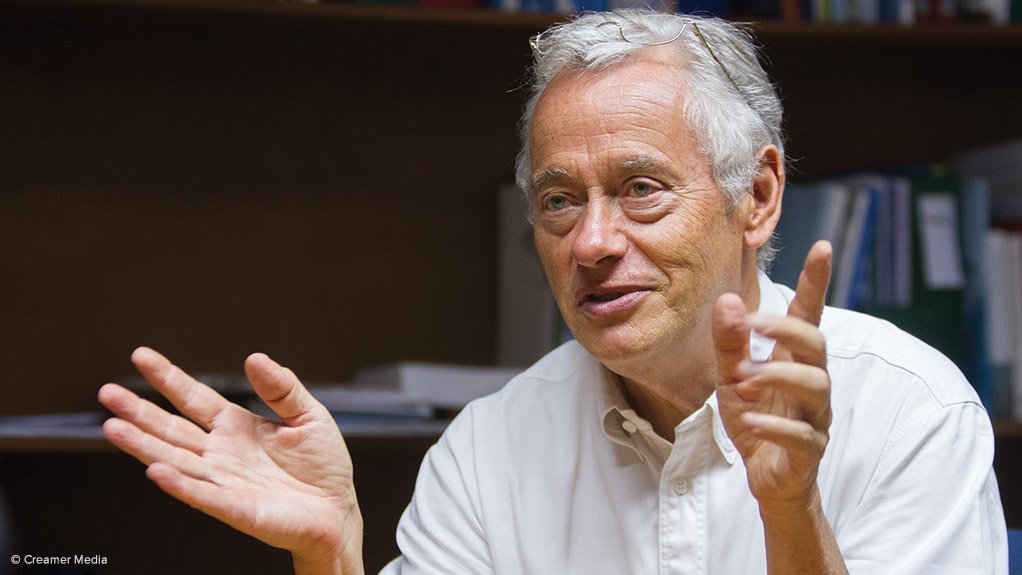Engineers have been urged to become more assertive in keeping political and social debates around water, as well as other infrastructure issues, more technically informed.
Delivering the South African Academy of Engineering open lecture in Johannesburg this week, Wits University School of Governance professor Mike Muller stressed that water shortages were due as much to human action, or inaction, as to natural phenomena such as rainfall variability.
People, not hydrology, determine the reliability of water supply, he asserted, pointing, in particular, to the failure of the Cape Town authorities to accept the need, in the early 2000s, for infrastructural interventions to stave off the threat of a drought. In 2013, city decision-makers stated that Cape Town would not need additional supply infrastructure because of its excellent water conservation and demand management programme, Muller noted.
“We need the right decisions to be made at the right time, informed by the best possible advice,” the former Water Affairs director-general said.
Instead many water- and infrastructure-related decisions were being taken for reasons other than the public interest, a tendency Muller attributed to the encroachment of politicians on the operational management roles within government. “This has led to problems since, in many cases, the priorities of politicians have not been the long term provision of effective services.”
The lecture came as a joint committee of the Portfolio Committee on Water and Sanitation and the Standing Committee on Public Accounts (Scopa) resolved that a commission of inquiry should be set up to probe the financial crisis at the Department of Water and Sanitation.
The joint committee agreed that the inquiry should include input from the Auditor General, the National Treasury and should be guided by a Scopa Budgetary Review and Recommendation Report, as well as a report by the Special Investigative Unit.
The auditor-general is on record as describing the department as having the worst record of fruitless and wasteful expenditure of any in government, while Scopa chairperson Themba Godi has called for criminal charges to be opened against those responsible for the department’s collapse.
Former Water and Sanitation Minister Nomvula Mokonyane has been moved by President Cyril Ramaphosa to the Communications Ministry and replaced by Gugile Nkwinti.
Muller said a key problem was that engineers and politicians work to different timescales. “For roads, power and water projects, we typically plan up to a decade ahead - five years is short term. Current water resource planning looks to 2035 and 2040. Meanwhile, for politicians, short term means this week, long term is until the next election. This short horizon inevitably shifts priorities.”
More concerning, politicians seek to maximise their support, for which funding is required. “The obvious temptation is to use their powers to allocate resources to consultants, contractors and suppliers in return for political and financial support.”
In a well-functioning system, the political head offers oversight by ensuring that competent people are appointed and that procedures are followed. If politicians take the decisions, however, the oversight function is lost and the result, more often than not, is expensive projects that are poorly conceived and executed and that fail to meet their objectives.
Muller acknowledged that it was often difficult for engineers to be assertive in a context where speaking up against a client or a project carried serious financial risks. It had become all the more difficult within the current climate of rising scepticism over the value of expert advice and where the role of technical expertise was increasingly challenged.
“Professionals can only be effective if they are trusted and supported by their society, which decides what tasks to delegate to their ‘technicians’ to protect the public against collapsing buildings, exploding boilers and failed water supplies.”
He added that more had to be done to ensure that the voices of professional engineers were heard, as critical contributors to public debate, informing the decisions of policymakers.
South African society would not be well served, Muller added, if it simply ignored engineers and their institutions.
“Politicians should beware of the arrogance of ignorance and learn to work in ways that nurture and harvest sound advice rather than ignore it.”
EMAIL THIS ARTICLE SAVE THIS ARTICLE ARTICLE ENQUIRY
To subscribe email subscriptions@creamermedia.co.za or click here
To advertise email advertising@creamermedia.co.za or click here











